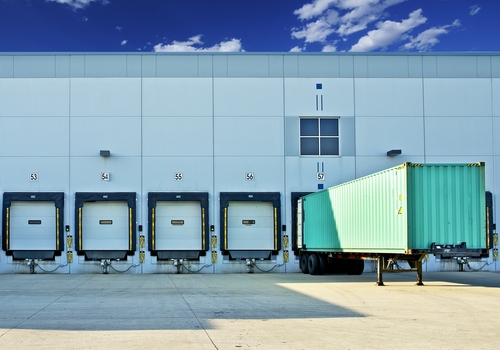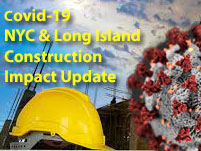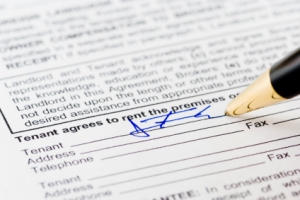Industrial and warehouse space can range from manufacturing and storage, to distribution such as pick and pack facilities. Each building you consider will have its own set of concerns so have a good understanding of the use of the facility and make sure you ask questions of the landlord to match your needs to the intended space.
Here’s a quick 13.5 starter tips:
1. HVAC – Most industrial buildings don’t have full building A/C as it may only be provided in finished space. Because you will have no idea how the HVAC system was maintained by the previous tenant, avoid assuming responsibility for HVAC that may have been neglected. Negotiate you will purchase an HVAC maintenance contract to maintain the existing system. However, should the unit fail, the landlord is responsible for replacing the unit. Obtain documentation that the unit(s) have been inspected and certified that they are in good working condition.
2. Operations Costs – Identify what can be excluded from operations costs such as roof repairs versus what’s included as part of the Landlord’s costs such as window and glass replacement.
3. Capital Repairs – Predefine capital repairs. In an older building, landlords often exclude replacements of a structural or capital nature, opting to repair rather than replace and defer the cost to the tenant.
4. Square Footage – How the landlord calculates square footage was the subject of one of my previous articles: WARNING: Ascertaining the “correct” real estate square footage can be a minefield fraught with peril! Many landlords “grow” the size of their buildings by including the area beneath the drip lines as part of the leasable area. Pay only for the usable square footage, which reasonably can include the wall thickness.
5. Parking Lot – Exterior parking and asphalt requires maintenance and landlords may make it the tenant’s responsibility. Repairs should be performed and paid for by the landlord because it’s a long-term performance issue for future value retention. What is the assigned parking for the building and is it enough?
6. Zoning – Check zoning to identify the building’s parking ratio (spaces/1,000sf) to ensure the property meets zoning requirements. If you need more parking than the code requires, look for another property. Is the area properly zoned for the intended use? Many tenants think that they can operate their business under the current zone, which may or may not be the case.
7. Property Maintenance – Ensure your lease spells out property maintenance as you may be responsible for landscaping and snow removal. Trash removal is usually the tenants cost.
8. Trailers – Know the type of vehicle and their weight fully loaded to ensure your docking area will support it. Check if there is maneuvering room for an 18 wheeler. Trucks and trailers have become longer where 45′ trailers were the norm years ago, now they are 60′ which means you need 120′ turning area. Many older buildings cannot accommodate the longer tractor/trailers.
9. Electrical – Check electrical capacity is adequate for your facility. While the breaker panel and meter may indicate sufficient power, you don’t want to be underpowered or blow a transformer. Hire an electrical engineer to survey the building for your needs such as number of Amps, the service size – 240 or 480 volts, etc.
10. Ceiling Heights – Tall ceilings over 28′ will need level floors. The higher you can stack racks the less tolerance for the height of the racks to tip over. Like kid’s building blocks, the higher you stack, the more likely they will fall.
11. Neighbors – Know what options the adjoining tenants have to know if expansion can be done in the future by either party. If your neighbors want to expand, negotiate a clause whereby the landlord will move you at the landlord’s cost.
12. Bathrooms – Insist existing restrooms meet ADA laws. See my previous article: I’m renovating my office, does the existing bathroom need to be ADA Compliant?
13. Floor Load – What is the live load for the slab versus your intended use?
13.5 Energy – What is the annual energy cost per square foot for the occupied areas or what is the Energy Star Rating so you can negotiate the greatest energy efficiency improvements. If the landlord has not conducted a commercial energy assessment, make sure they are willing to perform one as a basis for negotiating tenant improvements
Richard Neuman is an Owner’s Rep and Move Consultant with NY based Relocation Management Solutions, Inc. www.relocationmanagement.com
Discover more from Helping NYC & Long Island Commercial Tenants, Owners, and Developers
Subscribe to get the latest posts sent to your email.






It really helped when you mentioned how you should look to lease a commercial building where the landlord pays for any repairs or maintenance for the parking lot. I can understand that taking the time to understand this can help you save a ton of money and find the best place to lease. As I see it, taking the time to consult with a real estate agent can help you find the best place where your needs will be met and that you can lease for a good deal.
Really Good Tips. Right on Time for me since I’m taking an online course to become a Certified FM. I’m working on a project at this time and many of your tips will help tremendously.
Richard thanks for the Tips,
Wilson,
PS: I’m also looking for someone to be my Mentor for my online course. If anyone is available to help me, please advise. Thanks
Wilson, have you checked with your local chapter of IFMA? Many offer a mentor program.